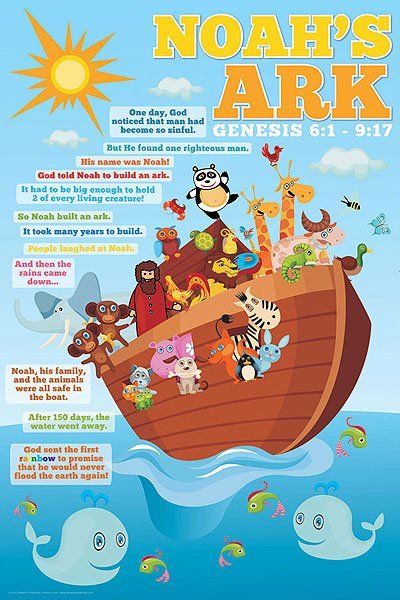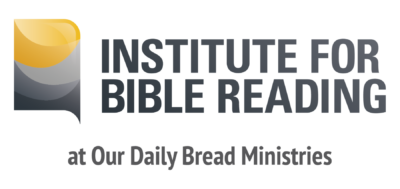Kids and the Bible: Are We Discipling Non-Readers?
Many adults are struggling to read the Bible. We know this. At some level it’s understandable, for the Bible is a big, complicated, and very ancient book. (At another level, the Bible is where Christianity gets its story, so the faith community needs to be deeply committed to knowing it well regardless of the challenges.) So if the adults are struggling, what would we expect from the kids?
If the Bible is tough going for the grownups, it’s going to be even tougher for younger readers, right?
It’s true, the challenge is not going to go away for younger readers. But maybe it’s time to look at how we’ve been trying to introduce kids to the Bible. What, exactly, has been our goal? What’s the right expectation for kids reading, knowing, and understanding the Bible? And what would the path to solid Bible fluency look like?
Where We’ve Been
Simply from taking a look at our standard Bible curricula it would seem that what’s actually happening is that we have other goals (spiritual formation, teaching morals, building faith, etc.) that use the Bible in certain ways. Often a deep engagement with the Scriptures themselves is not the intended destination. The result is usually that within any given lesson, the Bible is encountered as either a theme verse or two, or a safely paraphrased version of a “Bible story.”
Perhaps this approach is seen as a good and necessary adaptation of the Bible for readers who are younger and not yet proficient. It makes sense, right? Well, maybe not.
The problem with giving children a verse or two is that this approach tends to stick around as readers get older. We continue to show and teach the Scriptures by referring to “Bible verses” all the way through to adulthood. The consequence is that many people persist in thinking the Bible is in fact a collection of these verses (and if they are honest, admitting that some verses are better than others).
 The problem with an ongoing diet of paraphrased Bible stories is that such tellings are not actually the Bible. They are typically told with any age-inappropriate elements toned down or taken out. And of course any paraphrase represents someone’s interpretation of what the essence of a particular story is.
The problem with an ongoing diet of paraphrased Bible stories is that such tellings are not actually the Bible. They are typically told with any age-inappropriate elements toned down or taken out. And of course any paraphrase represents someone’s interpretation of what the essence of a particular story is.
All of this is appropriate as far as it goes, but there’s also a danger here. Many of these safe versions of the stories are never replaced with the actual biblical texts as kids turn into young adults. This means younger readers aren’t learning the way biblical language actually sounds and actually works. And older kids are never confronting the stronger, stranger, more complex versions of these stories that the Bible actually tells.
When do we get around to teaching young adults how to handle the real Bible?
Further, these collections of paraphrased stories are often treated as stand-alone lessons, so kids don’t ever learn how they are connected and build on each other to tell the bigger biblical narrative. And rarely are different kinds of literary writings ever acknowledged. A curriculum constructed of “Bible stories” will of course have difficulty incorporating things like letters, songs, wisdom sayings, and the other literary variety of our Scriptures.
So are we discipling kids into not being Bible readers?
What would any average child take away from their long-term experience with the Bible in our current teaching approach? Have they taken the first steps toward receiving the Bible on its own terms? Or have they been taught to use the Bible in simplistic and misleading ways?
What would any average child take away from their long-term experience with the Bible in our current teaching approach?Click To TweetI’m reminded of a conversation we had with a prominent publisher of children’s Sunday School resources and Bible curricula. After reviewing their programs and comparing them with our perspective on Bible engagement, one of their executives, deep in thought, looked up and said, “So you’re telling me that if our programs are successful, we are actually producing generations of non-Bible readers.”
Are kids growing up learning that the Bible is a book to be read? Do kids have an inkling of the big story? Are they falling in love with Jesus—that is, with a Jesus understood in the context of the overall narrative?
Where We’re Going
Okay, here’s where we admit we don’t know all the answers, but we believe that some things need to change. As youth within the church grow up, graduate, and head out on their own in various ways, it doesn’t appear that a healthy and hearty appetite for Bible reading is going with them. It shouldn’t be a surprise then that Bible reading and comprehension numbers are so low among adults in the church. People are following the path we’ve laid out for them, and then we scramble to convert adults into Bible readers after failing to show them the way in the first place.
So what would change look like?
The Institute for Bible Reading would like to learn more about all of this, and then do what we do, which is to provide fresh thinking and new resources that change the way the world reads the Bible.
We want to do more and better research on what the childhood Bible engagement landscape looks like in greater detail. What are the most popular current resources? What’s working and what’s not? What do kids say? What do parents say? What do teachers say?
We want to have in-depth, interdisciplinary conversations with all the right people and from all the right angles, so new learnings can take place. We want to listen well in an environment where different perspectives are presented and thoughtfully discussed.
We want to chart a course for a new future for kids and the Bible. We don’t believe that a Bibleless Christianity will be a vibrant and effective Christianity. The trajectory of downward Bible engagement in the church needs to be reversed if we are to fully receive the profound gift that we have in God’s word.

We want kids to know the Bible the right way at the right age and stage. We want kids to appropriately grow into the Bible. We want kids who not only love the Bible, but learn how to read it intelligently and well, so they don’t turn away from it the first time they encounter its opponents.
Please pray for us on this new journey. We need wisdom and resources and the courage to challenge old paradigms. Because God loves both his word and his children, and he wants them to flourish together.








